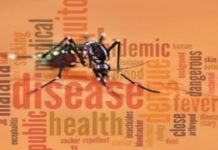Environment is everything that makes up our surroundings and affects life. Though it is something that is external to us, it is as significant as what constitutes our internals. Just as living and non living components are interdependent, so is our relationship to our surroundings. Our life’s nourishment and sustenance is dependent on the environment to the same extent as it is dependent on our counterparts.
Every year on June 5th ‘World Environment Day’ is celebrated to raise global awareness of the positive steps we need to take. The first World Environment Day was in 1973. World Environment Day is hosted every year by a different city with a different theme. The 2013 theme is “Think, Eat and Save” & this is targeted towards the food wastage.
Food is definitely an important aspect in our evolution as a human. In 2000 Hillard Kaplan, Kim Hill, Jane Lancaster, A. Magdalena Hurtado presented a theory (A Theory of Human Life History Evolution: Diet, Intelligence, and Longevity) that distinctive characteristics of human species and even intelligence are co-evolved responses to a dietary shift toward high-quality, nutrient-dense and difficult-to-acquire food resources. The distinctive characteristics are:
[dcs_ul_list type=”squ-blue”]
- an exceptionally long lifespan
- an extended period of juvenile dependence
- support of reproduction by older post reproductive individuals
- male support of reproduction through the provisioning of females and their offspring
- large brain
[/dcs_ul_list]
However, arrogance and ignorance appear to be the curse on the Human species. In spite of having good enough understanding on food and nutrition, we tend to – waste and even eat what we should not. S. Boyd Eaton & Melvin Konner have published papers on this. In the 1985 paper the duo stated that
‘The Human genetic constitution has changed relatively little since the appearance of Homo Sapiens Sapiens (about 40,000 years ago). Difference between Dietary patterns of our remote ancestors and the patterns now prevalent in industrialized countries appear to have important implications for Health, and the specific pattern of nutritional disease is a function of the stage of civilization. Physicians and nutritionists are increasingly convinced that the dietary habits adopted by the western society over past 100 years make an important etiologic contribution to coronary heart disease, hypertension, diabetes, and some types of Cancer. The 2000 study (Plant-animal subsistence ratios and macronutrient energy estimations in worldwide hunter-gatherer diets by Loren Cordain, Janette Brand Miller, S Boyd Eaton, Neil Mann, Susanne HA Holt, and John D Speth) indicates that there is a high reliance on animal-based foods coupled with the relatively low carbohydrate content of plant food. The humans may not tolerate diets that contain >35–40% protein by energy.
In spite of this, we, being an educated species, have done everything that goes against this understandingwhich in turn forced this year’s theme. According to the UN Food and Agriculture Organization (FAO) , every year 1.3 billion tonnes of food is wasted. This is equivalent to the same amount produced in the whole of sub-Saharan Africa. At the same time, 1 in every 7 people in the world go to bed hungry and more than 20,000 children under the age of 5 die daily from hunger.
Through this post – we are requesting all to Think about wastage, nutritional value and quantity while you eat.



































